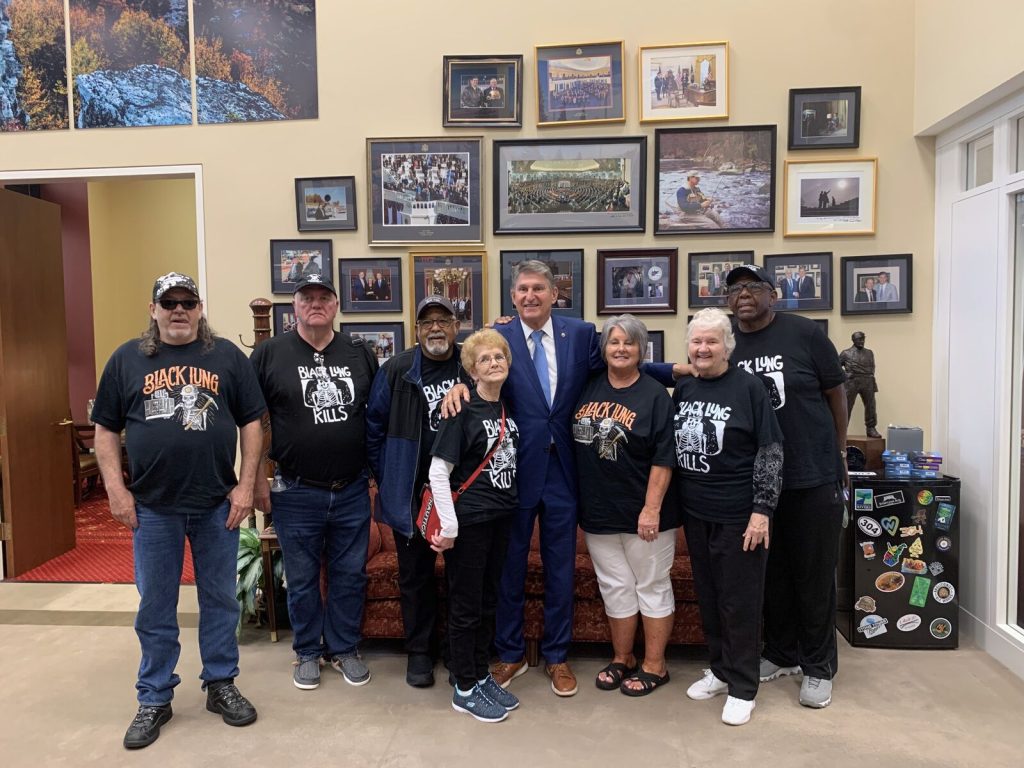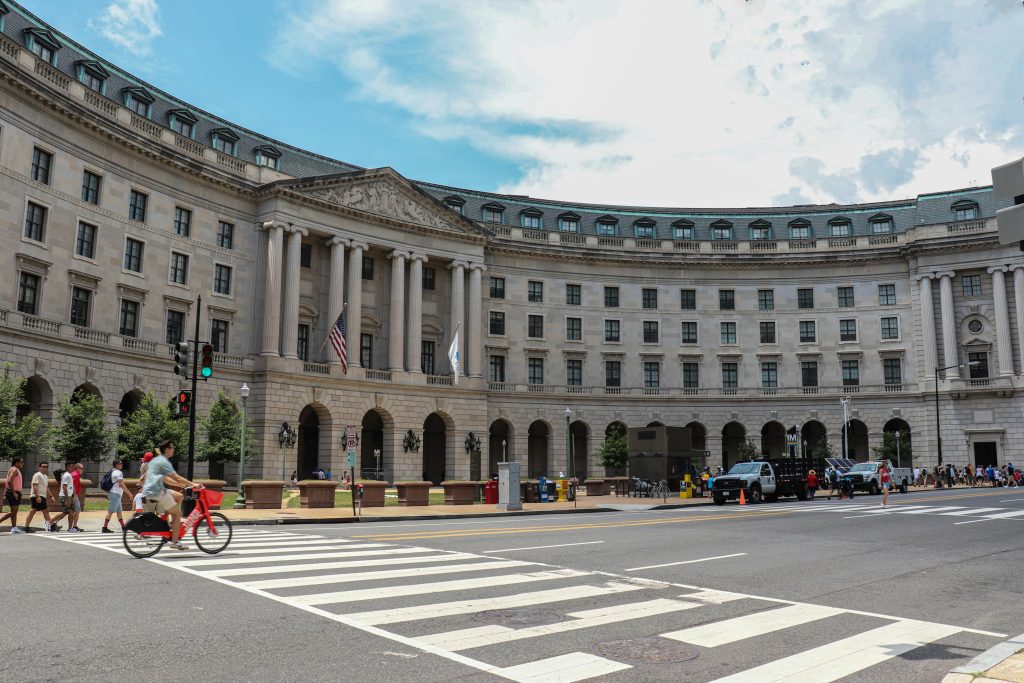Julia “Butterfly” Hill Speaks At Sweet Briar College
Julia “Butterfly” Hill became a focus of international attention as she spent 738 days on a platform suspended 180 feet up in 1,000-year-old redwood tree in California.
On March 13, as the featured speaker for the 3rd annual Julia B. Waxter Environmental Studies Forum at Sweet Briar College in Virginia, she spoke to an overflow crowd in the quaint Memorial Chapel.
Slender, sprightly, and barefoot, she first moved the imposing wooden podium to the side of the room. “A podium separates us, and what I want to leave you with tonight is that we’re all us — the air, the water, the trees, the earth — it’s all us.”
She began by disowning the Julia Butterfly celebrity persona as something that’s been created around her. “The granola munchin’, froo-froo New-Ager, treehuggin’ radical extremist, wacko hippie,” she said, “is not me.”
She promised that she would not just tell her story, she would relive it, laughing, crying, feeling all the pain. “Our feelings are integral to healing,” she said. “If we do not feel the pain and suffering of the world, how can we heal it? If we do not feel the joy and ecstasy of the world, how can we revel in its beauty?”
Hill said that the goal of her presentation was for everyone present to leave with a higher sense of purpose, and the knowledge that each and every one of us makes a difference. Not that we can make a difference, but that we do make a difference. She cautioned that to recognize our power is to accept an incredible amount of responsibility. “We’re taught to give that power and responsibility away. It takes courage to care, and that courage is within each of us.”
The daughter of a traveling preacher, Julia grew up poor, and became determined to leave poverty behind. In college, she majored in business — how to make money. She admits that her whole life was about money.
In August 1996, while driving a friends little sports car, they were hit from behind by a drunk driver in a Bronco. After 10 months of physical and cognitive brain therapy to recover her short-term memory and motor skills, she set off on a trip around the globe to reevaluate her place in the world and her connection to it. She got no farther than the ancient redwood forests of California.
Trees, many of them 200-300 feet tall, 2,000-3,000 years old, towering, majestic. She dropped to her knees and wept. That cathedral of the ancient redwoods touched something in her that had never been touched before.
Later, she learned that 97 percent of the ancient redwood forests have been razed during the past 100 years. She learned that timber companies clearcut these forests using 7-foot-long chain saws, and then “clean up” by burning what’s left using diesel fuel. Then they spray on 40 gallons of diesel fuel per acre to apply herbicides to the soil. Then, on this wasteland they’ve created, they dump chemical fertilizers and plant even-age tree farms, and call them “demonstration forests.”
Still later, she saw a photo of a massive mudslide that began on a Pacific Lumber/Maxxam Corporation logging road and clearcut, and destroyed the little town of Stafford on Highway 101. The photo brought a revelation: “We’re conditioned to think of the environment as out there,” she said, “a place we go to for walking and seeing Nature. It isn’t out there, it’s us!”
The photo showed a huge flood of mud, and, at the bottom was a huge pile of mud. Sticking out of the pile of mud was the corner of a house, and, a not far from that, in another pile of mud, there was the handlebar and red fender of a child’s tricycle. In the front of the photo, a father, holding his little boy’s hand, is walking away from their home.
It broke her heart to think that that little boy had to learn that the world isn’t as safe as he thought it was, and that people aren’t doing a very good job of watching out for him. Hill thought “I’ve got to do something about this.”
Then,” she said, “I came up with 101 reasons why I couldn’t get involved: don’t know enough, don’t have any experience…What I know now is that we come up with those 101 reasons why we can’t do something about injustice because deep down we’re afraid that we can.” She realized that, if she walked away from that injustice, her inaction would be as much a part of the destruction as the actions of the corporations.
So she went to an activist base camp near Stafford, where an activist named Shakespeare pointed to a tree up on Stafford Ridge, and said, “See that tree? That’s Luna.” Another activist, Almond, announced that someone was needed to sit in Luna. When Julia’s hand went up, Almond asked whether she had any experience, and rolled his eyes when she said no. “Anyone else want to sit in Luna? Anyone?” No takers, so he had to pick Julia.
She says the easy part was volunteering. The hard part was climbing three miles up the mountain, through mud, wearing a 100-pound pack. Never one to wimp out in front of guys, she made it.
The tree was named Luna because the activists had to go to it at night, by the light of the moon. Julia arrived at the tree just before dawn on December 10, 1997, and was instructed on climbing the tree, using ropes and a duct-taped harness. Terrified, she did it.
Almond and Julia were replacing another activist, and had promised to stay in Luna for three weeks to a month — a long time, as the typical tree-sit is a few days to a week.
The six-foot square platform was a piece of salvaged plywood, hanging in the tree by ropes. No nails were used. The roof and walls were tarps, a propane stove was used for cooking and to heat water for washing. The roof tarp formed a funnel, and a wall tarp formed a bowl to collect water. In that temperate rainforest, 90 percent of her water was collected in that way. Solar panels powered a radiophone. Ultimately, she spent 6-8 hours a day on that phone, speaking with media, groups, schools, Harvard University, the United Nations, the U.S. Senate…A studio apartment, 180 feet up.
Her exercise consisted of climbing around in the top of the tree. When the weather was bad, she huddled on the platform, shivering and afraid. That first year was the worst winter in northern California in recorded history.
After their first night in Luna, Julia and Almond awoke to the sound of chain saws. Loggers were cutting two of Luna’s 100-foot “babies” that grew out of her trunk. The roar of the chain saws was to be a daily constant.
To the timber company, it didn’t matter that these trees could never be replaced. All that mattered was that tree-sitters were inhibiting their ability to make a profit, and that meant war.
They sent a dual-propeller helicopter to hover 75 feet above the platform, creating 300-mph updrafts. They surrounded Luna with security guards in a round-the-clock siege to, in their own words, “cut off her supplies and starve her down.” She told them they could starve her to death, but not down, so they started blowing air horns all day and all night.
On the eighth day, community members and activists staged a protest on Highway 101 below Luna’s ridge, and 20 people risked arrest to climb the mountain carrying two weeks of supplies.
The media began to notice. Julia says, “Timber companies refer to tree-sitters as ‘terrorists.’ However, video tapes of the security blockade, the helicopter, the air horns…showed the world who the real terrorists are.”
Heading into the third winter of Julia’s tree-sit, Pacific Lumber/Maxxam, which had said it would never negotiate, decided it was time to say yes. On December 17, 1999, they agreed that Luna and three-acre tract on which she stands would be protected from logging, no matter who owns the land. On December 18, as the world watched, Julia rappelled to the ground for the first time in over two years.
Hill says what she learned from the experience is that heart and spirit are the most important things of all. She says the helicopters and the storms and the guards weren’t the worst of it. The worst was living in the middle of an active logging plan, helplessly seeing and hearing the ancient trees fall around her.
She tells how one of those ancient giants, its trunk severed by a chainsaw, begins to fall. The sound, she says, is a combination of an animal’s and a child’s scream. She felt overwhelming pain, rage, and hatred, and she prayed for guidance. The answer that came to her was, “Julia, you have to love.” With the example of the trees, which take in our toxins and give back clean air, she became determined to continue momentum of her tree-sit by spreading a message of love and healing.
The essence of her message is that connection to the heart and our spirituality is what will enable us to create the world we want to live in. It is, she says, our solace and our power.
She’s been tested over and over. The latest test came during Thanksgiving last year. While visiting her parents on the East Coast, she learned that an angry logger had attacked Luna, cutting two-thirds of the way through the tree with a chain saw. Feeling the pain of that cut, the last thing Julia wanted to feel was love. But it was there.
“To see the injustice, to feel the pain and anger, and to complain is the easy part,” she says. “The hard part is to transform that energy into love, and to take action. Whenever we point out something that’s wrong in the world, we must embody the solution. It’s easy to rant about what’s wrong. What’s hard is to hold ourselves accountable, to live what we’re preaching.”
Visit Julia’s Circle of Life Foundation at www.circleoflife.org. She has also written a book about her experiences atop the giant redwood and after, entitled, “The Legacy of Luna,” available at your local bookseller.
Related Articles
Latest News

Leave a comment
Your email address will not be published. Required fields are marked *




